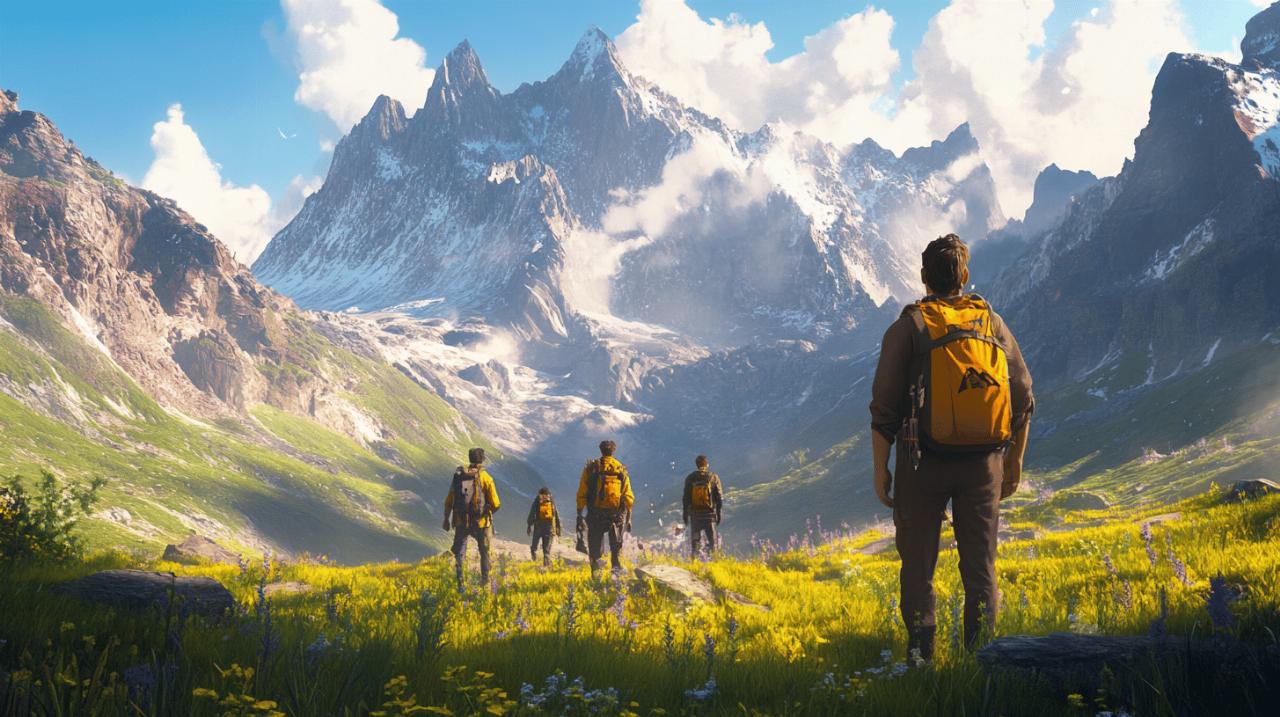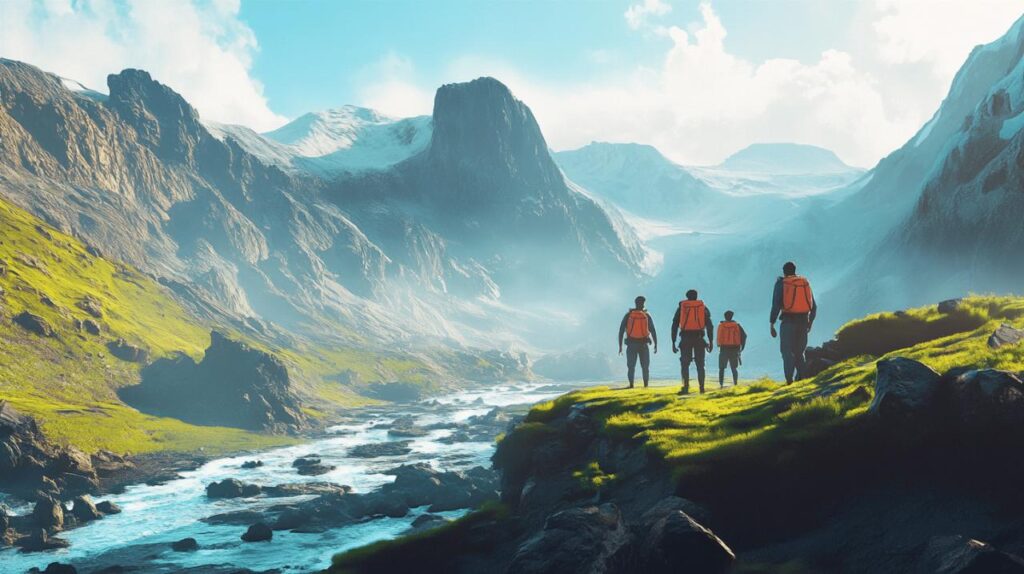Embarking on extraordinary journeys is what defines the modern explorer. Whether you’re seeking heart-pounding adventures or meaningful cultural connections, the world offers countless opportunities to create memories that will last a lifetime. The key is knowing where to go and how to make the most of your experiences abroad.
Pushing boundaries: extreme adventure destinations
The essence of adventure travel lies not just in visiting new places, but in experiencing them fully. According to Travel Myself, adventure tourism has evolved beyond simple sightseeing into immersive experiences that challenge our comfort zones and reward us with unforgettable memories. Their recent collection of inspirational content showcases how travellers are increasingly seeking out experiences that combine physical challenges with cultural discoveries.
The growth of adventure travel reflects our inherent human desire for exploration and discovery. From the snow-capped peaks of Nepal to the vast salt flats of Bolivia, adventure seekers are constantly pushing geographical and personal boundaries. The Everest Base Camp Trek offers a 10-14 day journey that tests physical limits while providing unparalleled mountain vistas. Similarly, driving across the Salar de Uyuni in Bolivia presents travellers with an otherworldly landscape spanning 11,000 square kilometers of pristine salt flats that seem to extend infinitely into the horizon.
Thrill-seeking in the world’s untamed landscapes
Natural wonders provide the perfect backdrop for extreme adventures. The Arctic regions of Norway, Finland, Sweden, and Iceland offer more than just Northern Lights viewing; they present opportunities for ice climbing, dog sledding, and winter camping in some of the most challenging environments on Earth. Meanwhile, in warmer climates, experiences like kayaking among icebergs in Nunavut, Canada or swimming in the wadis of Oman provide equally thrilling encounters with nature.
Mountain enthusiasts find their calling in destinations like Mount Kilimanjaro, which stands 5,895 meters above sea level as the tallest free-standing mountain in the world. The popular 8-day Lemosho route challenges climbers both physically and mentally while rewarding them with spectacular views across Tanzania. For those seeking less vertical but equally demanding adventures, the Congo Nile Trail in Rwanda offers a 120-kilometer hiking journey from Gisenyi to Kibuye through breathtaking African landscapes.
Safety considerations when exploring remote locations
While adventure travel provides unmatched experiences, it also requires careful planning and preparation. Safety must remain a priority, especially when venturing into remote or challenging environments. Adventure tourism experts recommend thorough research about destination requirements, appropriate training for physical challenges, and comprehensive travel insurance that covers adventure activities.
Equipment considerations are equally important. Packing appropriately for the specific adventure and environment can make the difference between an enjoyable experience and a dangerous situation. For instance, the Sweden Alone Bushcraft Survival Experience and Desert Island Survival adventures highlight the importance of proper gear and knowledge when facing extreme conditions. Travel Myself emphasizes that responsible adventure travel includes not only personal safety measures but also respect for local environments and wildlife.
Cultural immersion: beyond tourist hotspots
 True travel experiences extend beyond physical adventures to encompass meaningful cultural connections. The most memorable journeys often involve stepping off the beaten path to engage with local communities and traditions. Cultural immersion travel has gained popularity as travellers seek authentic experiences that provide deeper understanding of the world’s diverse populations.
True travel experiences extend beyond physical adventures to encompass meaningful cultural connections. The most memorable journeys often involve stepping off the beaten path to engage with local communities and traditions. Cultural immersion travel has gained popularity as travellers seek authentic experiences that provide deeper understanding of the world’s diverse populations.
Destinations rich in cultural heritage offer numerous opportunities for meaningful exchanges. Having lunch in a traditional Balinese family compound, witnessing the Floracion de Cieza in Murcia, Spain, or visiting a cultural village in Gauteng, South Africa provides insights into daily life and traditions that typical tourist activities cannot match. These experiences create lasting connections and foster greater appreciation for global diversity.
Connecting with local communities through authentic experiences
Authentic cultural experiences often emerge from simple interactions and activities. Castle hunting in Poland offers more than just architectural appreciation; it provides glimpses into the country’s rich history through over 500 historical structures. Similarly, attending Carnival in Trinidad and Tobago immerses visitors in vibrant Caribbean traditions through music, dance, and community celebration.
Culinary experiences represent another avenue for cultural connection. Copenhagen’s renowned food scene invites travellers to understand Danish culture through its innovative approaches to local ingredients. Wine tasting tours in Tuscany combine appreciation for Italian viticulture with opportunities to meet local producers and learn about regional traditions that have evolved over centuries.
Ethical travel practices that respect indigenous cultures
Responsible cultural immersion requires mindfulness about how our presence affects local communities. Sustainable tourism practices ensure that cultural exchanges benefit both visitors and hosts. This includes respecting local customs and traditions, supporting community-based tourism initiatives, and ensuring that economic benefits reach local populations rather than just international corporations.
Travel Myself highlights the importance of researching local customs and appropriate behaviors before visiting culturally sensitive areas. Their recent articles on Cuban music and artistic traditions demonstrate how cultural appreciation can enhance travel experiences while supporting local artists and traditions. Ethical travel also involves being conscious of photography practices, asking permission before taking pictures of people, and respecting privacy and religious sites.
The beauty of adventure travel lies in its ability to transform both landscapes and travelers. Whether scaling mountains, exploring ancient ruins, or sharing meals with local families, these experiences shape our understanding of the world and ourselves. By approaching travel with respect, curiosity, and openness, we create not just memories but meaningful connections that transcend borders and cultural differences.


